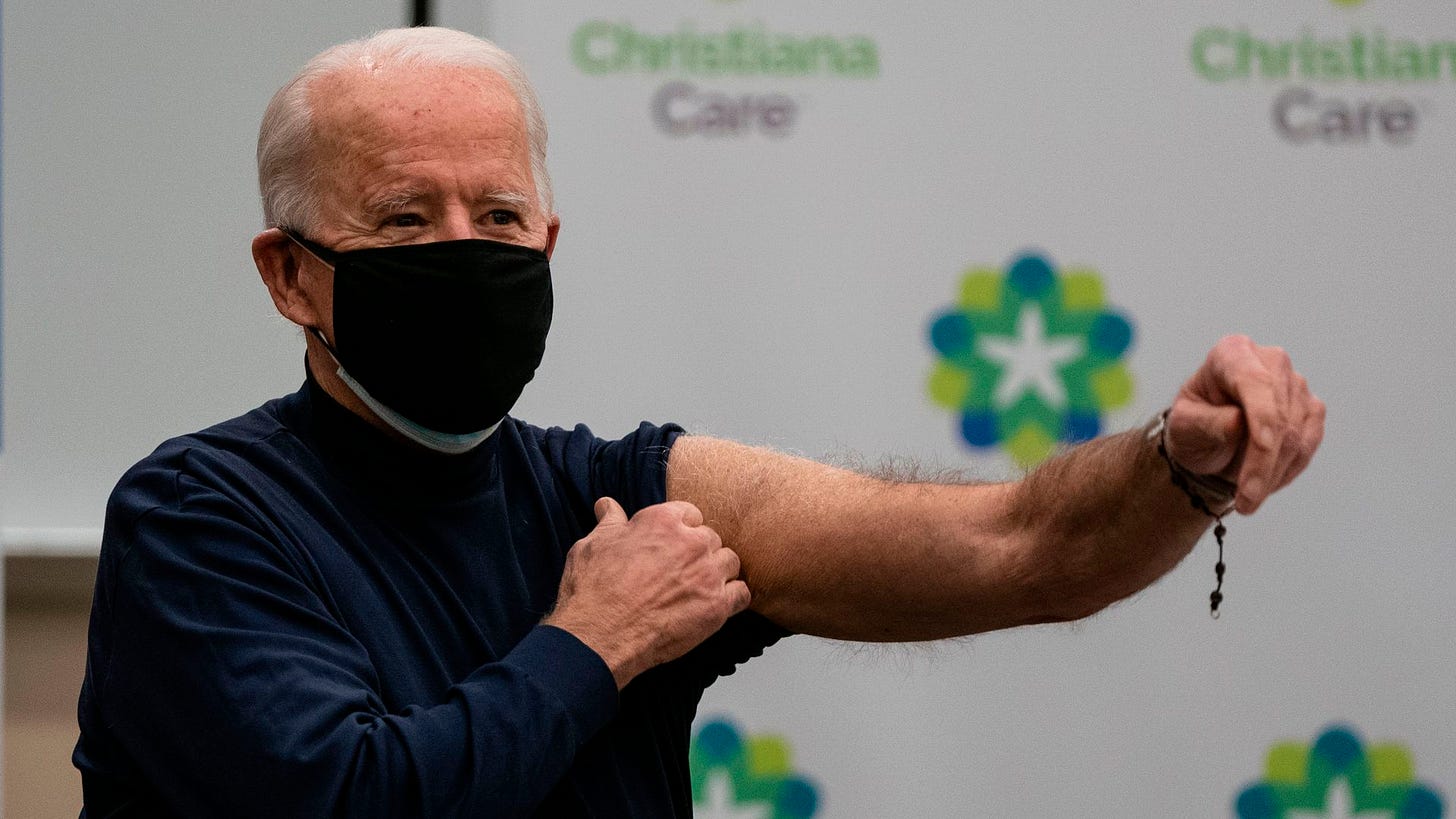Toward Vaccine Internationalism
How Mass Production of COVID-19 Vaccines Can Help Rebuild America’s Global Image – and Demonstrate the Value of Active American Involvement Overseas
President-elect Joe Biden has already announced his intention to use the Defense Production Act – a law that allows the federal government to direct the private sector to manufacture goods critical to the national interest – to accelerate production of COVID-19 vaccines when he takes office. In a policy speech last night, Biden put more flesh on the bones of his administration’s economic relief and coronavirus recovery plans. Beyond providing additional financial help to all Americans and boosting the national economy, these initiatives rightly focus on increasing the speed and volume of vaccine production to vaccinate as many Americans against the virus as quickly as possible.
It’s important to recognize that this vital step for American public health could and should also benefit America overseas. Some voices have already proposed the Biden administration launch an international vaccine production and distribution program modeled on PEPFAR, President George W. Bush’s AIDS relief plan, using the vaccines similar to the one co-developed by Moderna and the National Institutes of Health. Others have lamented the fact that the United States appears falling behind Russia and China when it comes to vaccine diplomacy in the Middle East. Nor is America unique when it comes to troubled vaccine rollouts; close allies in Europe seem to be having just as many problems vaccinating their citizens as the United States. On top of it all, new and more-transmissible strains of the COVID-19 virus have begun to appear in the United Kingdom, South Africa, and Brazil.
Whatever its eventual specifics, vaccine internationalism presents the Biden administration with an enormous foreign policy opportunity. Ramping up vaccine production at home and using that capacity to supply vaccines to the rest of the world would both start to repair America’s international image after four years of President Donald Trump and demonstrate to Americans in concrete terms how active involvement overseas helps them right here at home. Indeed, the emergence of new COVID-19 strains overseas – and their rapid spread to the United States – shows just how intimately American public health at home remains bound up with the public health of societies abroad. To safeguard the health of its own citizens, the United States must play a leading role in vaccinating the world against COVID-19 as rapidly as possible.
Swiftly building up America’s own vaccine production capacity as proposed by President-elect Biden will both help protect Americans against COVID-19 and allow the United States to use this enhanced productive capacity to help the world vaccinate itself. But America won’t just help itself by helping others here. In mass producing effective COVID-19 vaccines and helping other nations put more shots in the arms of their own citizens, America can dramatically enhance its international prestige at the same time. That’s an important if poorly understood element of foreign affairs, and one the Biden administration ought to grant greater attention.
It’s also an opportunity to steal a march from Chinese government, whose initial mishandling of the virus helped it spread around the world from its point of origin in China. The Trump administration’s own inept response to the pandemic allowed the Chinese government to portray its authoritarian crackdown on the virus as a great success story, and its hostility to international vaccine cooperation meant that Beijing could peddle its own less-effective vaccine worldwide without much competition from other nations. As a result, America remains very much in the game when it comes to vaccine diplomacy – and it can still prove its mettle overseas if it effectively leverages its own domestic production capacity to supply the bulk of the world’s COVID-19 vaccines.
Here, Biden can also take another page from Franklin D. Roosevelt when it comes to foreign policy. Even before America entered the Second World War, Roosevelt argued that the United States could best provide for its own national security by helping the Allies defend themselves against Axis aggression. America would become the “great arsenal of democracy,” furnishing the allies with the military equipment and supplies necessary to carry on the fight against Nazi Germany and Imperial Japan. Roosevelt rested his case on a recognition that, as he put it on a vastly different January 6 some eight decades ago, “the future and the safety of our country and of our democracy are overwhelmingly involved in events far beyond our borders.” The same logic applies to COVID-19 vaccines today, where the United States can help protect its own public health by helping other nations protect the health of their citizens.
Vaccine internationalism also offers an opportunity for bipartisanship at home. Former Bush administration officials directly involved in PEPFAR could be brought into policy deliberations, both for their substantive experience in administering that program and at least try to establish a modicum of bipartisan policy cooperation. Given the importance of vaccinating as many people as possible against COVID-19 worldwide, the Biden administration would do well to make a sincere and good-faith effort to reduce any potential that partisanship might infect this effort.
It goes without saying that the manufacture and distribution of COVID-19 vaccines to Americans should be the Biden administration’s utmost priority. But it should not neglect the potential of vaccine internationalism to repair America’s standing in the world and safeguard Americans against further COVID-19. Just as the United States used its titanic industrial capacity to make arms and armament for both itself and its allies during World War II, the Biden administration should use the vaccine production capacity it aims to establish when it takes office to vaccinate not just America but much of the world as well.





